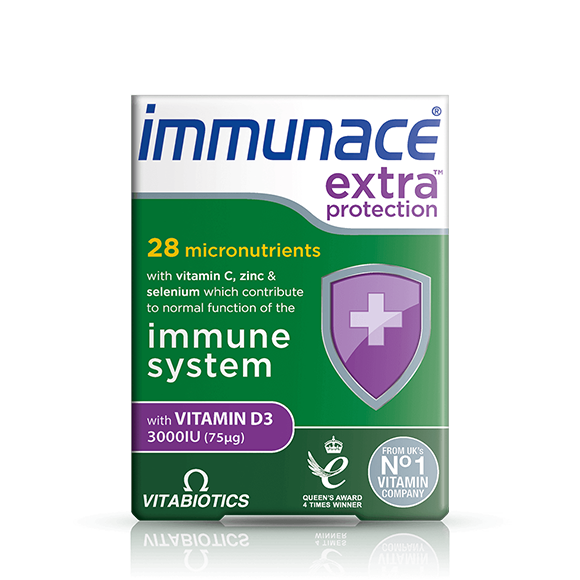Healthy Food Choices To Support Your Immune System
Our diets, and the lifestyle choices we make, can play a huge role in the maintenance of our immune system.
To help keep our immune system functioning effectively, we need to provide our body with the right vitamins and minerals and support it with good lifestyle choices.
We can get the nutrients we need from the foods we eat as well as extra support with supplementation, and in the case of vitamin D; sunlight!
So, what’s best to eat? We let you in on the food and supplement choices to support your immune system.
What Is The Immune System?
Our immune system is made up of a network of cells, tissues, and organs. These work together to help keep us healthy by attacking germs and other harmful substances.
Best Vitamins And Minerals To Support Your Immune System
Many of these helpful vitamins can be obtained from our diets and/or supplements. However, one key vitamin that contributes to a healthy immune system is vitamin D. We get the majority of our recommended daily intake of vit D through sunlight, as opposed to diet.
It is very tricky to get your daily recommendation of vitamin D through diet alone.
In the UK though, due to lack of sunlight throughout the autumn and winter months, the UK Department of Health and Social care encourages us to take a supplement containing 10μg of vitamin D a day between the months of October to March.
Other vitamins that help support your immune system include vitamin A and vitamin C. Vitamin A - also known as retinol - contributes to the normal function of the immune system. It is a fat-soluble vitamin, stored by the body, which means it isn’t necessary to have it every single day. The NHS do recommend however that men aged 19 to 64 get 700µg a day and women get 600µg a day.
As for vitamin C, the NHS state that adults aged between 19 and 64 should get 40mg of vitamin C every day.
Next up are B vitamins. Of the eight B vitamins, it is vitamins B6, B12 and B9 (Folic Acid) that help maintain a healthy immune system. As B vitamins are water soluble, our body does not store them. Therefore, we need an adequate amount each and every day, either through food and/or supplementation.
For vitamin B6, the NHS states that males aged 19 to 64 require 1.4mg per day whilst women need 1.2mg per day.
With Vitamin B9 -also known as folic acid - the NHS say that adults need 200μg each day. (While for pregnant women and those trying to conceive a daily supplement of 400μg folic acid is recommended)
Zinc, copper, and selenium are all minerals that contribute to the normal functioning of the immune system. All these can be obtained through food although supplements are very useful here if you feel that you may not be getting enough through your diet.
The NHS’ advice is that adults aged 19 to 64 need 1.2 milligrams (mg) of copper a day.
For selenium, men aged 19 to 64 years need 75 micrograms (μg) a day whilst women need 60μg a day.
With zinc, men aged 19 to 64 years need 9.5mg a day whereas women need a little less with 7mg a day.
Foods To Support Your Immune System
Ensuring you get the right vitamins and minerals into your diet is crucial to keep your immune function in tip top condition. Below are some of the key foods that contain vitamins D, C, A, B6, B12 and copper, selenium, and zinc.
Vitamin D Foods
Although it is hard to get adequate amounts of vitamin D from diet alone, there are some foods that do provide this crucial vitamin.
Vitamin D is measured in micrograms (µg).
- Fortified orange juice, 1 cup - 2.5µg
- Mushrooms, ½ cup - between 1.4 - 1.7µg
It’s worth noting that with some mushrooms, exposure to UV light (aka sunshine), can actually increase their levels of vitamin D.
Oily fish such as mackerel, salmon and sardines, provides a good amount of vitamin D, as do cod liver oil supplements.
- Cod liver oil, 1tsp - 11.3µg
- Cooked salmon, 85g, - 11.1µg
- Drained, canned sardines, 85g- 4.1µg
- Canned salmon, 85g -12.3µg
- Drained, canned tuna in oil, 85g, -5.7µg
- Whole milk, 1 cup -3.2µg
- Low/non-fat milks, 1 cup -2.9µg
- 1 large hard-boiled egg - 1.1µg
- Fortified cereals, ⅓ - ¼ cup - 0.2-2.5µg






Comments (0)